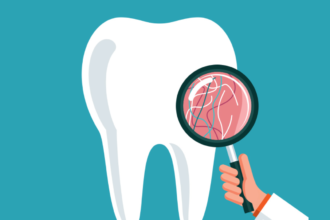Mental health is an essential aspect of overall well-being, yet many individuals struggle with knowing where to start when seeking treatment. With so many options available, it can be overwhelming to determine the right path. Whether you’re dealing with anxiety, depression, or trauma, finding the right treatment is crucial for recovery. This guide will help you navigate the various approaches to mental health treatment, from therapy and medication to holistic methods and support systems. By understanding your options, you can take confident steps toward improving your mental health and well-being.
Understanding Different Types of Therapy
There are numerous therapeutic approaches, each tailored to different mental health challenges. Cognitive Behavioral Therapy (CBT), for example, is one of the most commonly used methods and is highly effective in treating anxiety and depression. CBT focuses on identifying and changing negative thought patterns and behaviors. Dialectical Behavior Therapy (DBT) is especially useful for individuals dealing with intense emotions, self-harm, or borderline personality disorder. Psychoanalytic and psychodynamic therapies delve into past experiences and unconscious thoughts to uncover the roots of current issues. Person-centered therapy emphasizes self-growth in a supportive and empathetic environment. It’s important to explore and discuss these options with a professional to understand which one aligns with your personal needs and goals.
Customizing Your Treatment Plan
Every person’s mental health journey is unique, and treatment should reflect that individuality. Customizing your plan means taking into account your symptoms, goals, lifestyle, and preferences to create a strategy that truly supports your needs. For some, this may include a combination of talk therapy and medication, while others might benefit from incorporating holistic practices or joining support groups. In more structured settings, IOP Treatment, or Intensive Outpatient Programs, can offer a balance between rigorous support and personal flexibility, especially for those who need more than weekly sessions but not full-time care. Regularly reassessing your plan ensures it stays relevant and effective.
Medication as a Treatment Option
For many, medication plays a vital role in managing mental health conditions. Antidepressants, mood stabilizers, anti-anxiety medications, and antipsychotics are among the most prescribed, depending on the diagnosis. Medication can help stabilize mood, reduce symptoms, and make it easier to engage in therapy. It’s not a one-size-fits-all solution and should always be managed by a qualified psychiatrist. Starting medication may come with trial and error to find the right dosage and type, but many individuals find significant relief through this route. It’s also crucial to stay informed about potential side effects and to communicate openly with your healthcare provider. In many cases, combining medication with therapy yields the best outcomes.
Holistic and Alternative Approaches
Beyond traditional therapy and medication, holistic and alternative treatments can provide additional support and healing. These include practices like mindfulness meditation, yoga, acupuncture, and art or music therapy. These methods focus on the connection between mind, body, and spirit and are often used in conjunction with other treatments. For example, regular mindfulness practice has been shown to reduce stress and anxiety by training the brain to stay present. Expressive therapies like art and music allow individuals to explore their emotions creatively and nonverbally. While these approaches may not replace professional therapy, they can significantly enhance mental health when integrated into a comprehensive treatment plan.
The Role of Support Systems
No treatment plan is complete without acknowledging the importance of a strong support system. Friends, family members, and peer support groups can provide emotional encouragement, practical help, and a sense of community during difficult times. Many mental health professionals encourage individuals to involve trusted loved ones in their journey, as it often leads to more sustainable recovery. Support groups, whether in-person or online, offer a safe space for sharing experiences with others who understand what you’re going through. These networks can also help reduce feelings of isolation and stigma, making it easier to stay committed to treatment. Reaching out and building a support network is a powerful act of self-care.
Finding the Right Mental Health Professional
Choosing the right mental health professional is a critical step in your treatment journey. Psychologists, psychiatrists, licensed counselors, social workers, and psychiatric nurse practitioners all offer different services and specializations. While psychiatrists can prescribe medication, therapists typically provide talk therapy or counseling. It’s important to assess credentials, areas of expertise, and treatment philosophies to ensure a good fit. Many people benefit from an initial consultation to determine their comfort level and compatibility. Accessibility factors—such as location, insurance coverage, and availability—can play a role in your decision. Don’t be discouraged if the first professional you meet doesn’t feel right; finding the right person often takes time and patience.
Taking steps toward mental wellness is a deeply personal and courageous journey. There’s no universal solution, but by understanding the different treatment options and actively participating in your care, you can find a path that leads to healing and growth. Whether you’re just starting to explore treatment or seeking to refine your current approach, remember that help is available and recovery is possible. The right path for you exists—it’s just a matter of taking the first step to find it.













